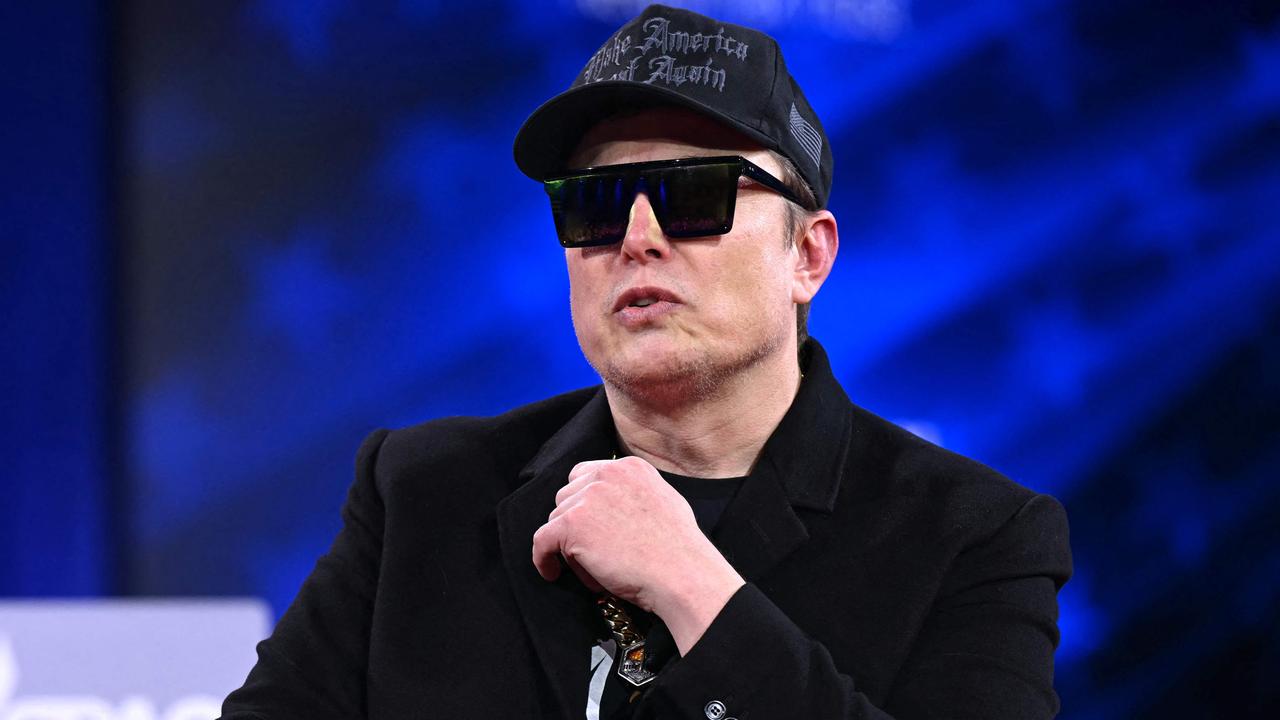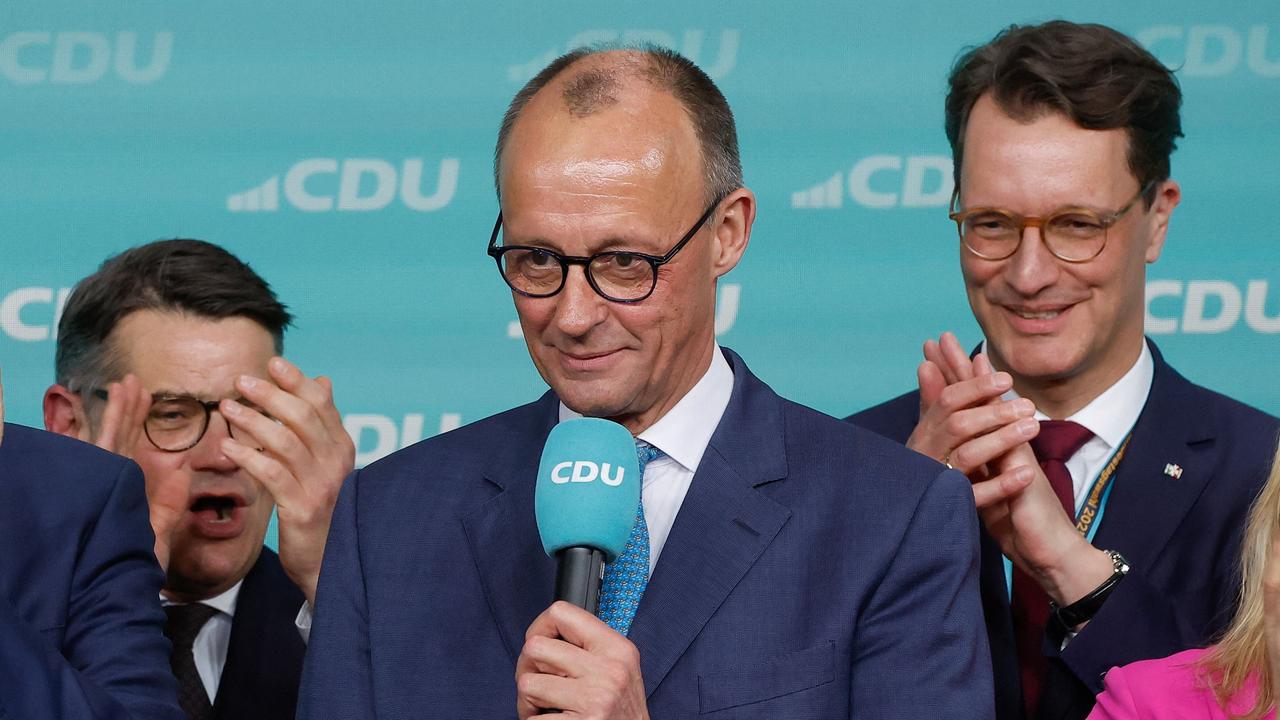Why Germany’s confidence is shattered and its economy kaput
As Germany went to the polls on Sunday, historians and economists say risk-averse leadership has held back Europe’s largest economy.
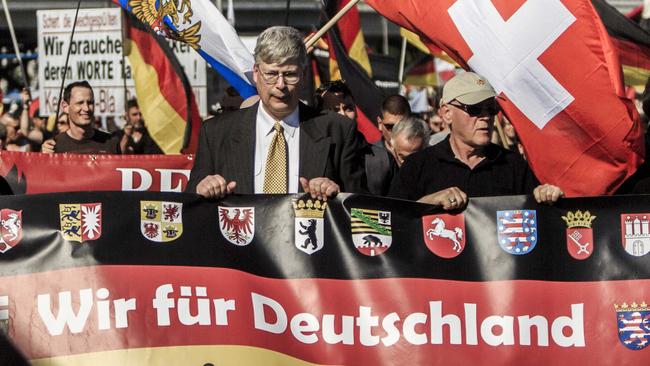
A decade ago, Germany was the model nation. Its economy hadn’t just withstood the ascendance of China; it was thriving in its wake.
Its balanced public finances stood out in a world of huge government debt. And while British and US politicians were caught up in the culture wars, German politicians continued to practise the art of compromise.
Today, Germany has gone from paragon to pariah. Its economic model is broken, its self-confidence shattered and its political landscape fractured.
Europe’s former growth engine has shrunk for two years in a row, erasing any recovery made since the Covid-19 pandemic.
Its manufacturing output is down about 10 per cent over the same period and its companies, squeezed between rising costs and falling exports, are shedding thousands of jobs a month.
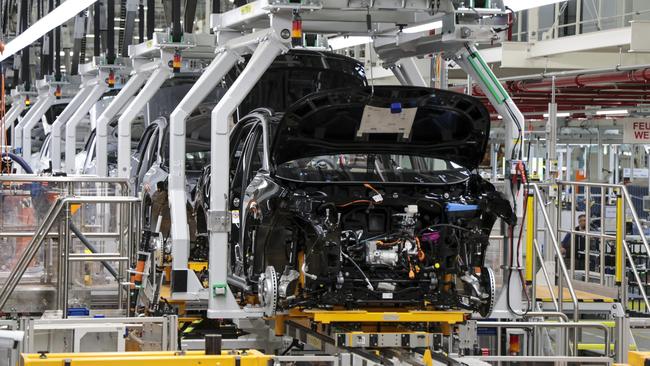
When voters went to elect a new parliament on Sunday, the far right looked likely to double its seats and a fragmented centre could struggle to form a stable government.
There are external causes for this malaise, from the war in Ukraine to US protectionism and China’s economic slowdown.
Yet some analysts, economists and historians think Berlin mismanaged its response. The reason? Conservatism – defined not as the political ideology but as the preference for the status quo over change, for reaction over action and for caution over risk.
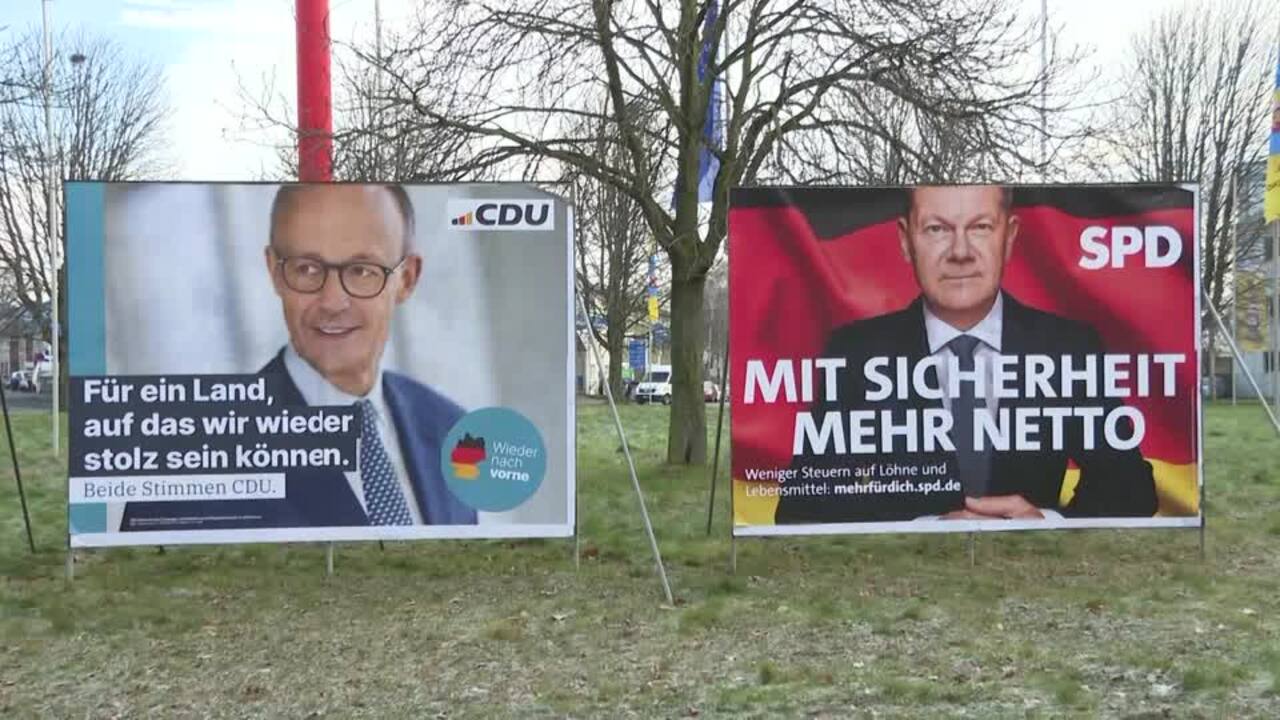
This is partly the wage of success. As long as Germany’s economy was growing, brushing aside the financial crisis and the Eurozone debt crisis, there was no pressure to course-correct, said historian Timothy Garton Ash, author of Homelands, a history of Europe in the past 50 years.
“Germany woke up last because they were doing best,” he said. “It’s a critique of the political, business and, to some extent, intellectual elites because it would have been their role to look ahead and see the coming challenges.”
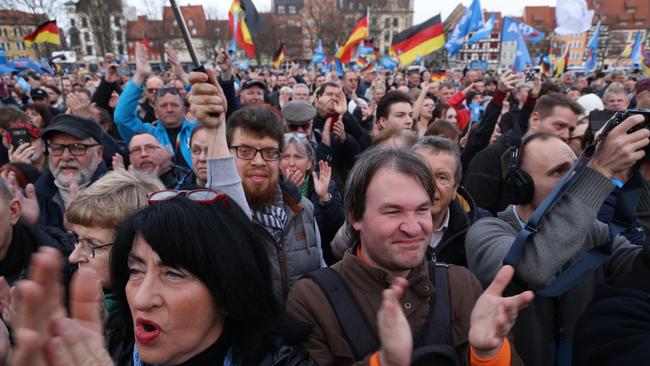
Germany was a pioneer in cutting CO2 emissions. It enacted its first ambitious renewable energy law a quarter of a century ago, and aims to become greenhouse-gas-neutral by 2045, earlier than most other nations.
Less known is how little success it has had. While emissions were down 60 per cent in 2023 from their 1990 level, according to the government, a sharp drop that year was because of the recession.
Today, Germany’s CO2 emissions per capita are above the global and the European Union average, higher than Britain and France and just below China’s, according to Our World in Data.
Meanwhile, German households paid the highest electricity prices in the EU in the first half of last year, according to official EU statistics.
One reason for this mixed record was chancellor Angela Merkel’s 2011 decision, after the Fukushima nuclear accident, to accelerate a planned phase-out of nuclear energy. It meant Germany needed more fossil fuel, including coal and Russian natural gas, as it ramped up renewables.
The US and European allies warned Germany it was too dependent on Russia. Yet Merkel stayed put in 2014, when Russia annexed Crimea.
So did her successor, Olaf Scholz when Moscow invaded the rest of Ukraine and began throttling gas deliveries, driving up prices and forcing Berlin to restart idled coal-fired plants.
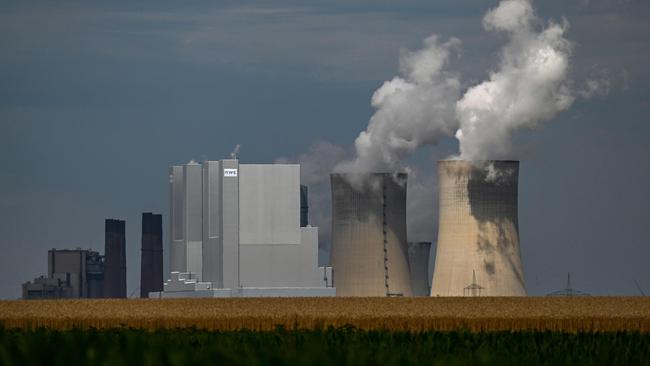
“The problem with consensus societies is that sometimes the consensus is wrong, and when it is, there is no corrective mechanism,” said Wolfgang Münchau, author of Kaput – The End of the German Miracle, published late last year. “It’s the opposite of a whistleblower society.”
After a short extension over the winter months, Germany’s last three nuclear power plants went offline in April 2023, in the middle of an energy crisis that had begun to sink the German economy.
When Merkel let in hundreds of thousands of Middle Eastern, Central Asian and African asylum-seekers stranded between Greece and Hungary in 2015, many Germans welcomed the move, flocking to train stations to greet the new arrivals.
The biggest influx of people in the history of post-war Germany resulted from a non-decision. As described by Robin Alexander, deputy editor of Die Welt newspaper, in his 2017 book, Die Getriebenen, which translates as The Driven, Germany’s borders were already open under the provisions of the Schengen document-free travel area. As the migrants approached, Merkel chose not to close them.
Why? Because of the risk that a closure would be challenged in court and that the border police might have to use force to protect the borders.
“The border stayed open, not because Angela Merkel deliberately decided so, nor anyone else in the federal government,” writes Alexander. “At the crucial moment, there was simply no one willing to take responsibility for closing it.”
For Andreas Rödder, historian and head of Republik21, a conservative think tank in Berlin, “Merkel was always very good in her analysis … of why this won’t work and why that’s impossible, and bad at finding how to make things possible. That’s a German attitude but it’s also very European. Americans are much better at trying things and seeing what happens”.
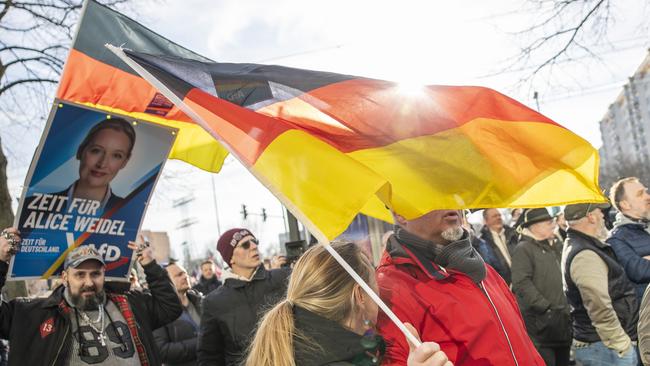
As the public mood soured over migrants, boosting the far-right Alternative for Germany, or AfD, successive governments made incremental changes to immigration laws – to little effect.
The country registered more than 250,000 asylum applications last year, down from 2023 but higher than any other year since 2016.
Today, migrants are less likely to be working than Germans and more likely to commit crimes. The federal government alone spends €30bn ($49.4bn) a year on benefits for refugees and asylum-seekers – more than half the country’s defence budget.
For Rödder, Germany’s inability to change course when circumstances evolve, evident both in its nuclear energy and immigration policies, betrays what he called “a static view of the world” that has become ingrained since reunification.
As the dust settled after the fall of the Berlin Wall, he said, a sense spread in Germany that the world, too, had found its steady state and that Germany no longer had to change.
A decade ago, as Tesla was creating a buzz around its expensive electric cars, Germany’s automotive bosses made two fatal assumptions: That their expertise in making cars would translate into the electric-vehicle age, and that China would continue to absorb ever larger numbers of petrol-fuelled Audis and Volkswagens.
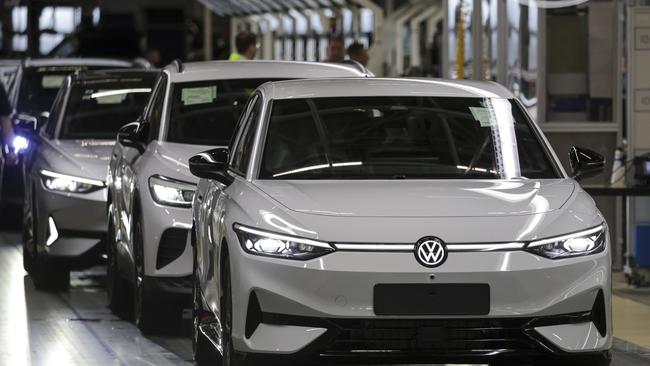
Making EVs, the companies later discovered, was largely about batteries and software, which people who excelled at making pistons and fuel valves weren’t necessarily good at. After Tesla, Chinese carmakers have now leapfrogged their German rivals in EV technology, eroding the latter’s market share.
“If you’ve dominated the market for almost 40 years, especially in the high-end segment … the readiness to rethink things from the ground up, as Elon Musk did, isn’t high,” said Jürgen Pieper, an independent automotive analyst.
For Münchau, this speaks to a central weakness of the German economy: reliant on analog technologies – mechanical engineering, chemicals – it has survived thanks to minor adaptations and luck; from the EU’s enlargement to the rise of China, which opened up new markets and low-cost production locations.
But the model is falling behind. In 2023, Germany recorded 133,000 patent applications, less than half the numbers in South Korea and Japan, according to the World Intellectual Property Organisation.
Most German patents were for mechanical and industrial applications, with computer technology and digital communications dominating in the US and China respectively.
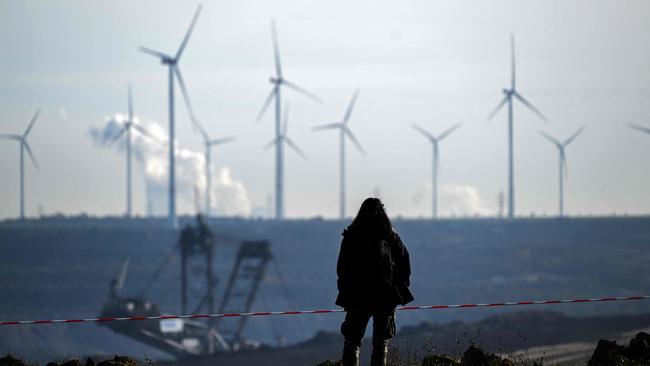
“Even today, the debate is all about how to get manufacturing back on track, extend the life of the model for another 10 years,” said Münchau. “People talk about competitiveness, whereas in the US they talk about growth.”
Germany wasn’t always risk-averse and allergic to change. After World War II, innovation and entrepreneurship swept the country, and by the 1950s, its economy had overtaken that of France and the UK.
German leaders have grasped opportunities and taken risks in the past. Chancellor Helmut Kohl pushed for reunification, despite misgivings in Paris and London. Faced with record unemployment, chancellor Gerhard Schröder unveiled unpopular labour market and welfare reforms that put the economy on a 20-year growth path.
Today, “the accumulation of multiple special interests, like barnacles on a ship’s hull, has shifted the balance too far against change”, said Garton Ash. “But a huge amount depends on the personal leadership qualities of the chancellor. And you never know till the guy gets into the job.”
THE WALL STREET JOURNAL




